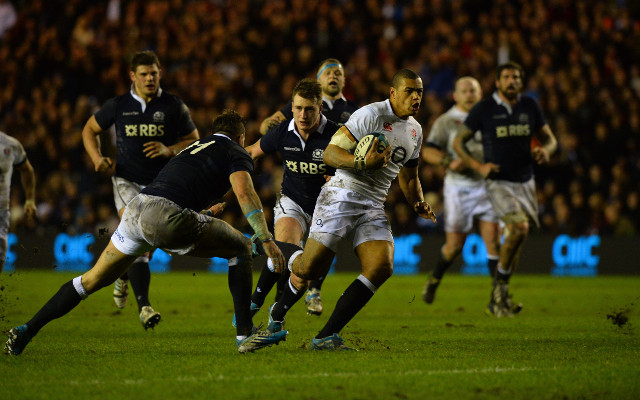Title hopes gone for another year after back-to-back losses.
Scotland coach Scott Johnson backed his “naive” side to come good after a humbling 20-0 defeat by England.
Saturday’s Calcutta Cup reverse at Murrayfield was Scotland’s second convincing loss of the Six Nations after they’d been beaten 28-6 away to Ireland in their tournament opener.
It also represented the second time in four matches they’d been ‘nilled’ following a 28-0 defeat by South Africa at Murrayfield in November.
The only ‘positive’ for Scotland after they were rendered pointless in the Calcutta Cup for the first time since a 15-0 defeat at Murrayfield in 1978 was that England’s victory margin wasn’t even more convincing, with outside-half Owen Farrell missing three penalties.
But Australian coach Johnson, who controversially dropped experienced captain Kelly Brown from a pack bested in the set-piece by a seasoned group of England forwards, said he owed it to his successor, Vern Cotter, to leave him with a squad of sufficient depth and maturity when the New Zealander takes over at the end of the season.
“It would be really easy for me to sit here and pick the same campaigners and do the same as before,” said Johnson.
“Time in the saddle is crucial; in the back division they haven’t had much front-foot ball to play off but I’ve got a good back division there.”
“The fact is I don’t want to retrace steps. I feel, athletically, we can get out (of trouble) with this group, I do.
“They are not perfect, trust me they are well off being perfect and they will be frustrating but I don’t just want to do the same.”
Johnson, who will move ‘upstairs’ to become Scotland’s director of rugby when Cotter arrives from French giants Clermont Auvergne, added: “I want to build for something so that when Vern takes over there’s enough maturity and depth around this squad, and athleticism, that we can compete against anybody.”
“They’re naive, sometimes their skill lets them down and puts them under pressure.
“But I think the majority of them can provide Scotland with a really competitive national team against anyone, I genuinely think that and I’m not going away from that.”
But with Scotland now effectively selecting from just two professional teams — Glasgow and Edinburgh — plus a handful of players at overseas clubs, the key issue may be one of player depth.
After all, Scotland kicked off on Saturday with a side boasting 46 more caps than England and with an average age of 25.9 to England’s 24.6.
Indeed centre Luther Burrell — who scored the first of England’s two tries — was appearing in just his second Test, as was wing Jack Nowell.
Two missed penalties by scrum-half and newly-appointed captain Greig Laidlaw were the closest Scotland came to scoring points.
“We struggled at the set-piece,” said Laidlaw. “We had 30 percent possession and we were lucky to have that. It was just as well we had some resolve or we would have had a lot more (points scored against Scotland).”
It was a theme echoed by Johnson after Scotland conceded a lone converted try in the second half, with England full-back Mike Brown scoring when the hosts had centre Alex Dunbar in the sin bin.
“I’ve got a sore neck from looking down one end of the field for the entire second half but there was bit of a character out there,” said Johnson ahead of Scotland’s next match, away to Italy on February 22.
“We let them in when we had a yellow card but, other than that, the scoreboard sort of flattered us in many ways. We held on.”

COMMENTS